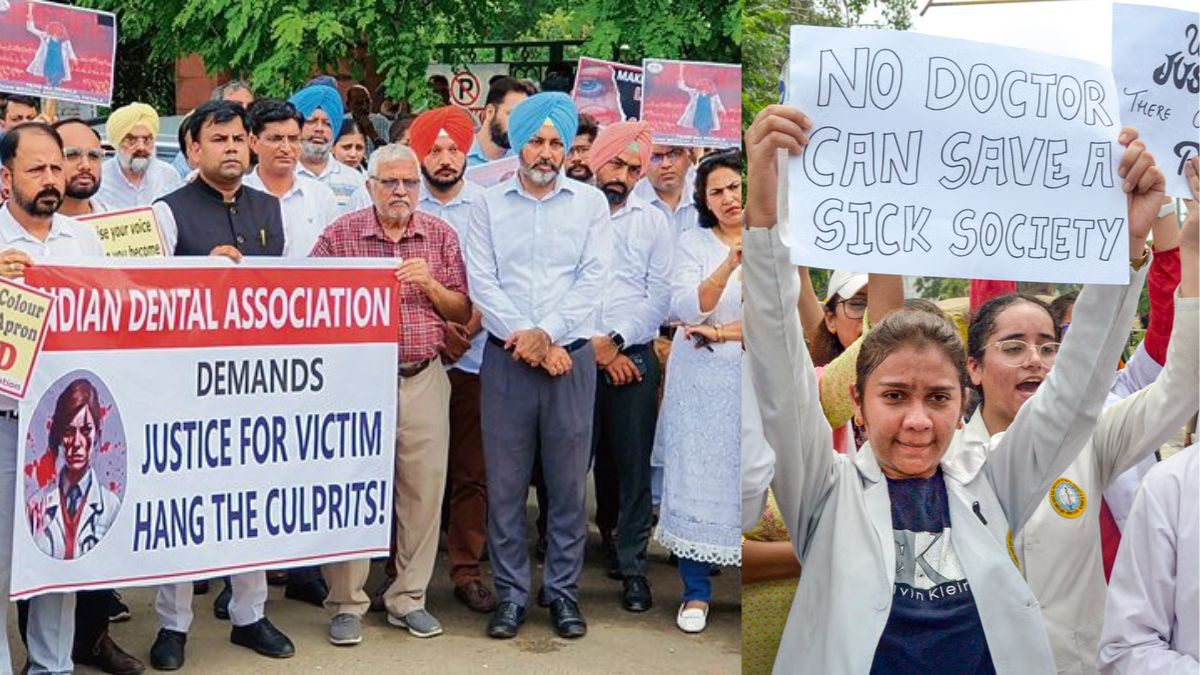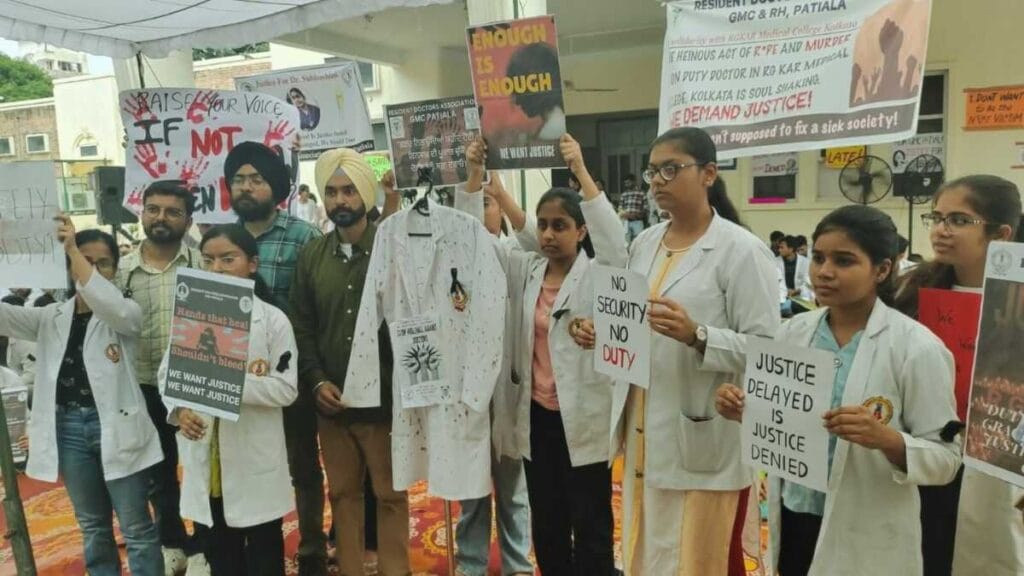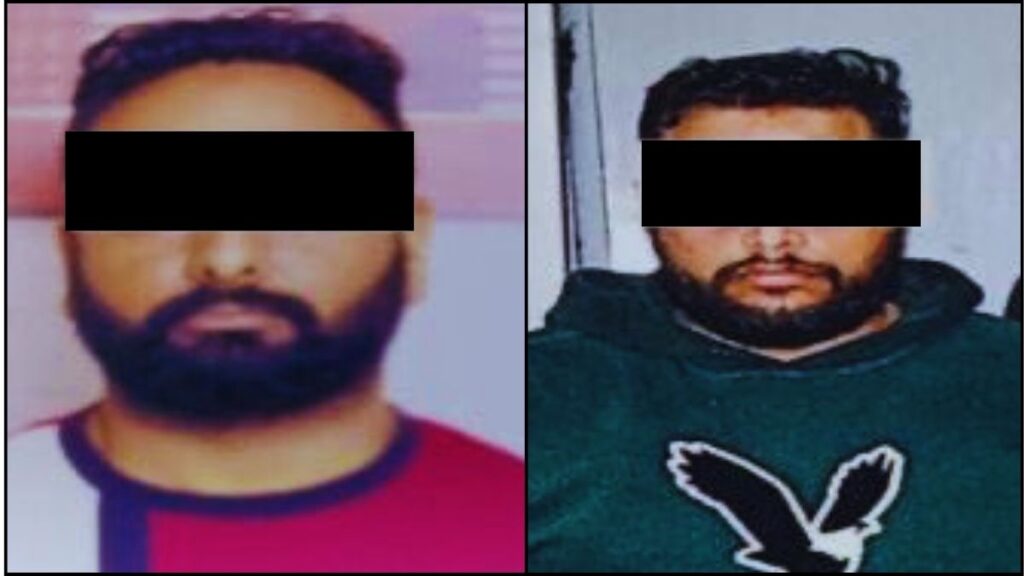Indian Medical Association Protest for Justice and Safety
On the invitation of the Indian Medical Association, Congress MP from Patiala Dr Dharamvir Gandhi led a protest at Baradri Garden on August 17 against the alleged rape and murder of a trainee doctor in Kolkata. Condemning the incident, the MP demanded trial by a fast-track court and exemplary punishment to ensure the safety of women.
He also sought the establishment of dedicated women grievance redressal cells in every institute in the country and strict implementation of the guidelines laid down by the Supreme Court. Dr. Gandhi demanded the implementation of the Healthcare Services Personnel and Clinical Establishments (Prohibition of Violence and Damage to Property) Bill, 2019 (The Central Protection Act) to protect healthcare workers.
The protest led by Dr. Dharamvira Gandhi was a poignant reminder of the ongoing struggles faced by women and healthcare professionals in India. Dr. Gandhi said that heinous crimes against women which are happening continuously across the country.
They represent a patriarchal and medieval mentality, which needs to be eradicated. The gruesome incident in Kolkata has triggered widespread anger, especially among the medical community, who have long suffered under exploitative systems. Dr. Gandhi emphasized the urgent need for systemic changes to ensure the safety and dignity of women in all sectors, particularly in healthcare.
The tragedy in Kolkata, where a trainee doctor was allegedly raped and murdered, has left an indelible mark on the medical community. The appointment of Dr. Sandip Gosh, who was transferred to the Calcutta National Medical College after resigning as principal of RG Kar Medical College and Hospital, where the incident occurred, has added fuel to the fire.
Students and staff at the institution have expressed their frustration and anger over the lack of accountability and the pervasive culture of exploitation. Dr. Gandhi highlighted the necessity of addressing these deep-rooted issues to prevent such tragedies from recurring.
Dr. Gandhi’s call for a fast-track trial and exemplary punishment underscores the urgency of the situation. He stressed that the implementation of dedicated women grievance redressal cells in every institution and the strict enforcement of Supreme Court guidelines are critical steps in ensuring justice.
The Healthcare Services Personnel and Clinical Establishments (Prohibition of Violence and Damage to Property) Bill, 2019, also known as The Central Protection Act, is a crucial piece of legislation that aims to protect healthcare workers from violence and abuse. Dr. Gandhi’s demand for its implementation is a plea for the safety and well-being of those who dedicate their lives to serving others.
The solidarity displayed by medical professionals across the country is a testament to their collective resolve to fight for justice and safety. Doctors and hospital staff staged a dharna in Sangrur demanding justice for the deceased trainee doctor and implementation of the Central Security Act. The protest saw a significant turnout, with health services remaining paralyzed at the civil hospital, although emergency services were still offered to patients. The protesting doctors marched from the Sangrur Civil Hospital to Mahavir Chowk, raising their voices against the injustices faced by healthcare workers.
The protests have had a widespread impact, with healthcare services being affected in various regions. In Abohar, healthcare services at the 100-bed civil hospital and private clinics were suspended. IMA chief Dr. DP Godara described the Kolkata incident as a blot on society and reiterated the union’s call for the implementation of strict laws to ensure the safety of doctors. Patients, particularly expectant mothers, faced hardships as ultrasound services remained suspended at government hospitals.
The Kolkata incident has garnered international attention, with the Pakistan Medical Association (PMA) showing solidarity with the deceased’s family and drawing the attention of the international medical fraternity to the inhumane act. The PMA has appealed to the World Medical Association to get involved and ensure that the culprits are caught and brought to justice. This call for international intervention highlights the global nature of the struggle for the safety and dignity of healthcare professionals.
The protests and the widespread impact they have had underscore the need for systemic change. The tragic incident in Kolkata and the subsequent protests reflect a broader issue of violence and exploitation in the healthcare sector. The demands for fast-track trials, exemplary punishment, and the implementation of protective legislation are steps toward addressing these issues. However, it is also essential to address the underlying cultural and systemic factors that allow such incidents to occur.
The Healthcare Services Personnel and Clinical Establishments (Prohibition of Violence and Damage to Property) Bill, 2019, also known as The Central Protection Act, is a crucial piece of legislation aimed at protecting healthcare workers from violence and abuse. The Bill seeks to provide a legal framework for addressing violence against healthcare workers and ensuring their safety. Dr. Gandhi’s call for its implementation highlights the importance of legal protections for those in the healthcare sector.
While legislation is an essential tool in protecting healthcare workers, it is also necessary to address the root causes of violence and exploitation. The patriarchal and medieval mindset that Dr. Gandhi referred to is a significant factor in the ongoing violence against women and healthcare professionals. Addressing these deep-rooted cultural issues requires a multifaceted approach, including education, awareness, and systemic changes in institutions.
Creating a safer environment for healthcare professionals is a critical goal that requires the concerted efforts of policymakers, institutions, and the broader community. The establishment of dedicated women grievance redressal cells, the strict implementation of Supreme Court guidelines, and the enactment of protective legislation are essential steps. However, it is also necessary to foster a culture of respect, dignity, and safety for healthcare workers.
The solidarity shown by medical professionals and the broader community is a crucial factor in the fight for justice and safety. The protests, dharnas, and marches are expressions of collective resolve and a demand for systemic change. Community support is essential in creating an environment where healthcare workers feel safe and valued.
Ensuring accountability and justice for the victims of violence is a critical component of creating a safer environment for healthcare professionals. The demand for fast-track trials and exemplary punishment underscores the urgency of the situation and the need for swift and decisive action. Holding perpetrators accountable is essential in sending a strong message that violence and exploitation will not be tolerated.
Institutions have a significant role to play in promoting the safety and well-being of healthcare workers. The establishment of dedicated grievance redressal cells, the implementation of protective legislation, and the fostering of a culture of respect and dignity are essential steps. Institutions must take proactive measures to address the issues of violence and exploitation and ensure the safety of their staff.
The protests and the widespread impact they have had underscore the need for ongoing vigilance in addressing the issues of violence and exploitation in the healthcare sector. It is essential to remain vigilant and proactive in addressing these issues and ensuring the safety and well-being of healthcare workers. This requires the concerted efforts of policymakers, institutions, and the broader community.
Building a culture of respect and dignity for healthcare workers is a critical goal that requires the efforts of all stakeholders. This includes policymakers, institutions, and the broader community. By fostering a culture of respect and dignity, we can create an environment where healthcare workers feel safe and valued.
Education and awareness are essential components in addressing the issues of violence and exploitation in the healthcare sector. By raising awareness and educating the community about the importance of respect and dignity for healthcare workers, we can create a safer and more supportive environment.
International organizations have a significant role to play in addressing the issues of violence and exploitation in the healthcare sector. The call for international intervention by the Pakistan Medical Association highlights the global nature of the struggle for the safety and dignity of healthcare professionals. International organizations can provide support, advocacy, and resources to address these issues.
The protests and the widespread impact they have had underscore the need for action in addressing the issues of violence and exploitation in the healthcare sector. It is essential to take decisive steps to ensure the safety and well-being of healthcare workers. This requires the concerted efforts of policymakers, institutions, and the broader community.
Ensuring the safety of healthcare workers is a critical goal that requires the efforts of all stakeholders. By implementing protective legislation, fostering a culture of respect and dignity, and addressing the root causes of violence and exploitation, we can create a safer environment for healthcare workers.
The solidarity and support shown by medical professionals and the broader community are essential in the fight for justice and safety. By coming together and raising their voices, the community can demand systemic changes and ensure the safety and well-being of healthcare workers.
Creating a safer future for healthcare workers requires a multifaceted approach, including the implementation of protective legislation, fostering a culture of respect and dignity, and addressing the root causes of violence and exploitation. By taking these steps, we can ensure the safety and well-being of those who dedicate their lives to serving others.
The protests and the widespread impact they have had underscore the need for comprehensive reforms in the healthcare sector. By implementing protective legislation, establishing dedicated grievance redressal cells, and fostering a culture of respect and dignity, we can create a safer environment for healthcare workers.
Ensuring accountability and justice for the victims of violence is a critical component of creating a safer environment for healthcare professionals. By holding perpetrators accountable and implementing protective legislation, we can send a strong message that violence and exploitation will not be tolerated.
Policymakers have a significant role to play in addressing the issues of violence and exploitation in the healthcare sector. By implementing protective legislation and fostering a culture of respect and dignity, policymakers can create a safer environment for healthcare workers.
Institutions have a critical role to play in promoting the safety and well-being of healthcare workers. By establishing dedicated grievance redressal cells and implementing protective legislation, institutions can create a supportive and safe environment for their staff.
Creating a culture of safety and respect for healthcare workers is a critical goal that requires the efforts of all stakeholders. By fostering a culture of respect and dignity and addressing the root causes of violence and exploitation, we can create a safer environment for healthcare workers.
The international community can support the safety of healthcare professionals by providing advocacy, resources, and support for protective legislation, raising awareness about the issues faced by healthcare workers, and fostering a culture of respect and dignity globally.
What is the Indian Medical Association (IMA)?
The Indian Medical Association (IMA) is a national organization of medical professionals in India that advocates for the interests and welfare of doctors and healthcare workers.
What was the reason for the IMA’s protest in Patiala?
The IMA protested in Patiala to demand justice for the alleged rape and murder of a trainee doctor in Kolkata and to call for the implementation of protective legislation for healthcare workers.
What is the Central Protection Act?
The Central Protection Act, also known as the Healthcare Services Personnel and Clinical Establishments (Prohibition of Violence and Damage to Property) Bill, 2019, is legislation aimed at protecting healthcare workers from violence and abuse.
Why is there a need for dedicated women grievance redressal cells in institutions?
Dedicated women grievance redressal cells are essential to address and resolve complaints of harassment and exploitation faced by women in institutions, ensuring their safety and dignity.
What steps can be taken to ensure the safety of healthcare workers?
Steps to ensure the safety of healthcare workers include implementing protective legislation, establishing dedicated grievance redressal cells, fostering a culture of respect and dignity, and addressing the root causes of violence and exploitation.
How can the international community support the safety of healthcare professionals?
The Indian Medical Association’s protest in Patiala, led by Dr. Dharamvira Gandhi, is a powerful call to action for justice and safety for healthcare workers. The tragic incident in Kolkata has highlighted the urgent need for systemic changes to address violence and exploitation in the healthcare sector.
By implementing protective legislation, fostering a culture of respect and dignity, and addressing the root causes of violence, we can create a safer environment for healthcare workers. The solidarity shown by medical professionals and the broader community is a testament to their collective resolve to fight for justice and ensure the safety and well-being of those who dedicate their lives to serving others.
Stay connected with NH Punjab on social media. Follow us on Facebook, Twitter/X, and Instagram for the latest news updates, behind-the-scenes content, and more. Engage with us online and be a part of our growing community.
Sign up for our newsletter to get the latest news delivered straight to your inbox. Follow us on social media for real-time updates and engaging content.



